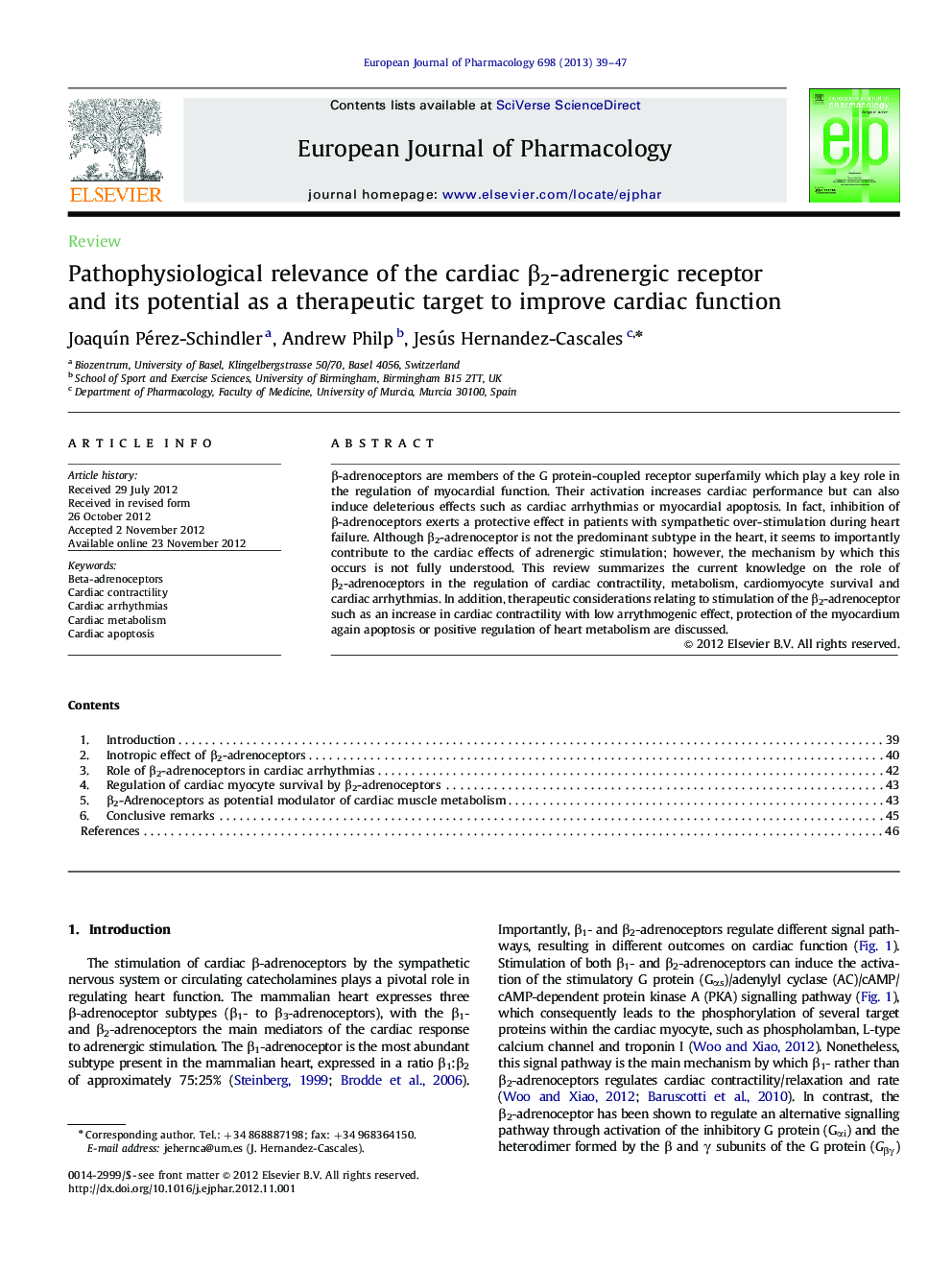| Article ID | Journal | Published Year | Pages | File Type |
|---|---|---|---|---|
| 5828909 | European Journal of Pharmacology | 2013 | 9 Pages |
β-adrenoceptors are members of the G protein-coupled receptor superfamily which play a key role in the regulation of myocardial function. Their activation increases cardiac performance but can also induce deleterious effects such as cardiac arrhythmias or myocardial apoptosis. In fact, inhibition of β-adrenoceptors exerts a protective effect in patients with sympathetic over-stimulation during heart failure. Although β2-adrenoceptor is not the predominant subtype in the heart, it seems to importantly contribute to the cardiac effects of adrenergic stimulation; however, the mechanism by which this occurs is not fully understood. This review summarizes the current knowledge on the role of β2-adrenoceptors in the regulation of cardiac contractility, metabolism, cardiomyocyte survival and cardiac arrhythmias. In addition, therapeutic considerations relating to stimulation of the β2-adrenoceptor such as an increase in cardiac contractility with low arrythmogenic effect, protection of the myocardium again apoptosis or positive regulation of heart metabolism are discussed.
